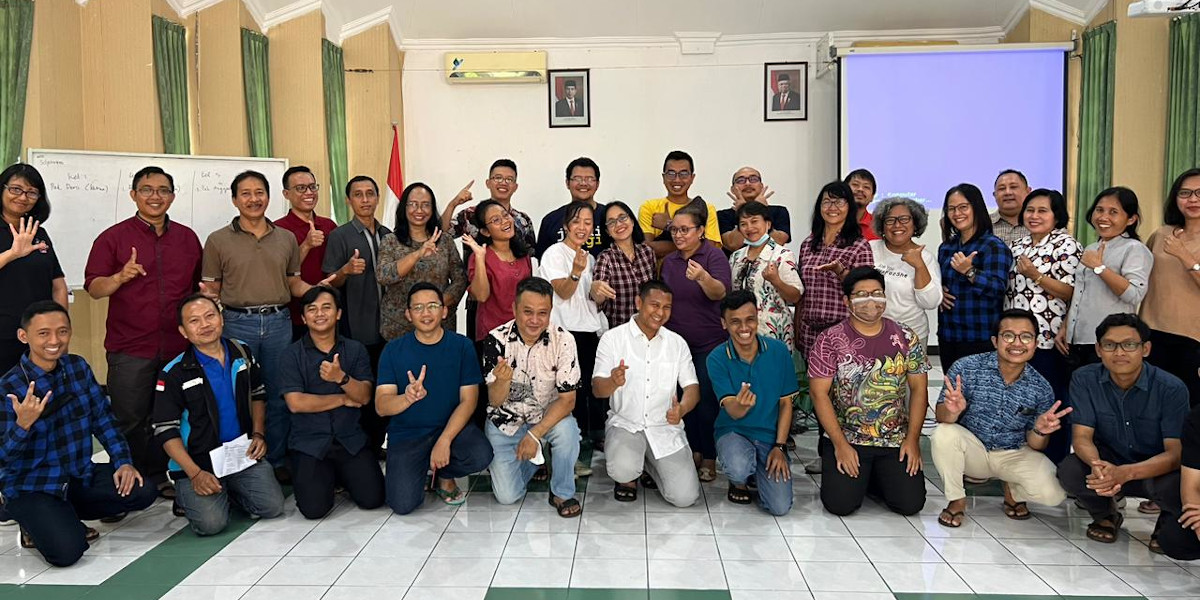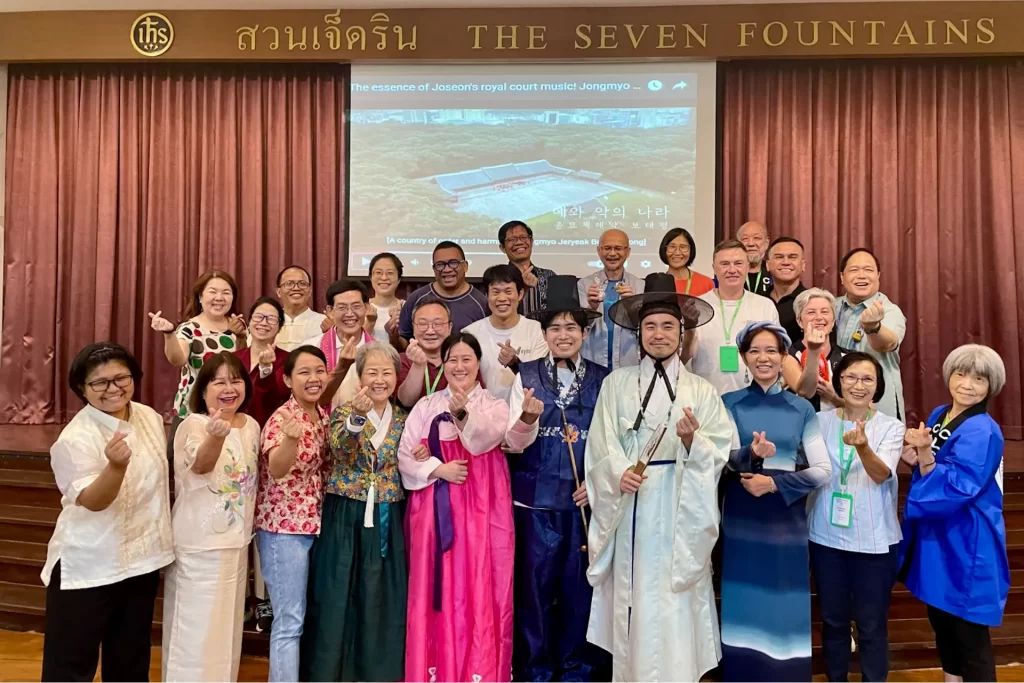
The workshop sought to assess the progress of the implementation of a safe culture in each apostolate following last year’s BOWS. It also intended to facilitate collaboration and learning in building a safe culture both within individual institutions and the broader Jesuit network, especially for those that were not able to participate in the BOWS held in Bali.
Each institution sent a representative from their designated task force, responsible for coordinating or animating a safeguarding culture. Most of the participants came from Jesuit educational institutions, including Kanisius Foundation, Universitas Sanata Dharma, and ATMI Polytechnic in Solo and Cikarang. Also present were delegates from the province’s Communications Office and Education Commission. The workshop was facilitated by the IDO Safeguarding Team, and conducted in hybrid format, with 31 participants attending in person and the others joining remotely online.
Before the workshop, the participants reviewed the current situation of their institution and identified urgent needs for creating a safe culture. The following questions aimed to help them understand their current situation: (1) What key elements can be implemented in your institution based on the BOWS Safeguarding Workshop, and what concrete actions have you done after the Workshop? (2) In accordance with the Society’s standards, does your institution already have and implemented a safeguarding protocol (consisting of a Code of Ethics, Reporting System, and Assistance to Victims)? (3) What kind of challenges and difficulties have you encountered in building a safe culture and implementing safeguarding protocols in your institution? (4) What kind of help and support do you expect from the IDO Safeguarding Team?
The majority of the participants were first-time attendees. They realised that safeguarding is not primarily about handling cases of abuse but rather a proactive effort to create a safe environment where everyone’s dignity is respected. They felt encouraged and energised to make safeguarding an integral part of their institution’s services. The participants were also able to learn from other institutions that already have well-established systems in place for creating a safe culture. Towards the end of the workshop, they developed an action plan tailored to the specific needs of their respective institutions.
Regular workshops on safeguarding will be conducted as part of the province’s ongoing prevention and training efforts. The IDO Safeguarding Team also plans to facilitate safeguarding seminars for parishes, recognising that they may have different contexts due to the implementation of policies formulated by the bishops.
It is expected that all the Jesuit institutions in the Indonesian Province will fully implement and commit to safeguarding protocols as a concrete expression of the second Universal Apostolic Preference: To walk with the excluded, the poor, the outcasts of the world, those whose dignity has been violated, in a mission of reconciliation and justice. [Yulius Eko Sulistyo SJ, IDO Delegate for Safeguarding]






